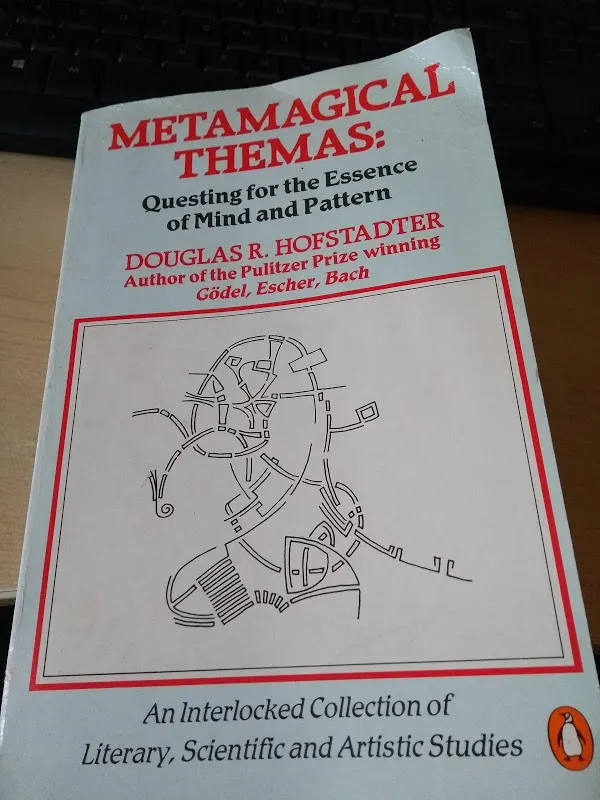I have mentioned before that I have been reading Metamagical Themas by Douglas Hofstadter. This book by the author of Goedel, Escher and Bach reprints his columns from Scientific American in the early 1980s. His specialism is artificial intelligence, but the topics range over music, language and chaos theory.

A section at the end of the book covers various aspects of the prisoner's dilemma. This is a thought experiment in the field of game theory. There are variations on it, but it goes something like this:
Two known criminals are arrested and held in separate cells where they are offered a deal. If either of them betrays the other they will be released and the other gets three years in prison., but if both betray they get two years each. If neither says anything they will serve one year for other crimes.
Betrayal seems an attractive option, but if the other does the same then they will be worse off. cooperating to stay silent may give them the best chance of a shorter sentence, i.e. they take a risk for a better general result.
There are lots of variations of this game that may involve more players and different conditions. Hofstadter suggests several, including a lottery that is free to enter. There is a prize of up to one million dollars and you just need to send in the number of times you want to enter. The issue is that the actual prize will be that million divided by the number of entries. So if people say they want to enter thousands of times then they could only win cents.
The same idea applies to real situations. It would be best for the world if all countries take measures to reduce carbon emissions, which would affect their economies. The temptation is to ignore the problem to maximise profit and hope others do something about the problem. Or there is the arms race where the ideal situation is no nuclear weapons, but a lack of trust means countries stockpiled them 'just in case'.
Personal short-term gain can override what might seem like a better strategy for the longer term. We have seen this in various forms on Steem and Hive with such activities as:
- Buying votes
- Self-voting
- Proxy accounts
- 'Circle jerks'
- Plagiarism
These may earn you something, but do little to make the platform attractive to investors. This is part of the reason the token prices have remained so low. The whole cryptocurrency market is an exercise in game theory where people attempt to manipulate the situation for maximum profit at the expense of others. Hive has to compete against hundreds of other projects for attention.
I think Hive can be more than just a 'get rich quick' scheme. I believe the original intention was to create something that could empower people from all parts of the world. You can get into it with no initial financial investment and earn if you have content that others see value in. Once people hold some HIVE they can use it to curate or to trade for things they need. The lack of transaction fees makes micro-transactions viable. Such an empowering currency should attract investors who want to offer services they can charge for as well as earning from curation.
The key is that we need cooperation between Hive users/owners to achieve its potential. We have seen that growth is slow and many do not stick around long when they fail to earn much. We need to be supporting good content that will attract a wider audience and not just help out our friends. If you believe in the potential then you should invest what you can afford, be that money or time. With more large accounts the rewards are likely to get spread wider. That may mean less rewards for some of us who are used to doing well, but if we can attract more investors then the value of our stake will grow anyway. I would rather have 50,000 HIVE at $5 than 1,000,000 at 5c.
I have invested some of my own money in this thing as well as thousands of hours. I think the world needs alternatives to the existing financial systems that tend to just enrich those who already have enough. From the day I signed up I could see this was something different and I would hate to see that potential wasted.
Ask not what Hive can do for you, but what we can do together to change the world (paraphrasing JFK).
Hive five!
